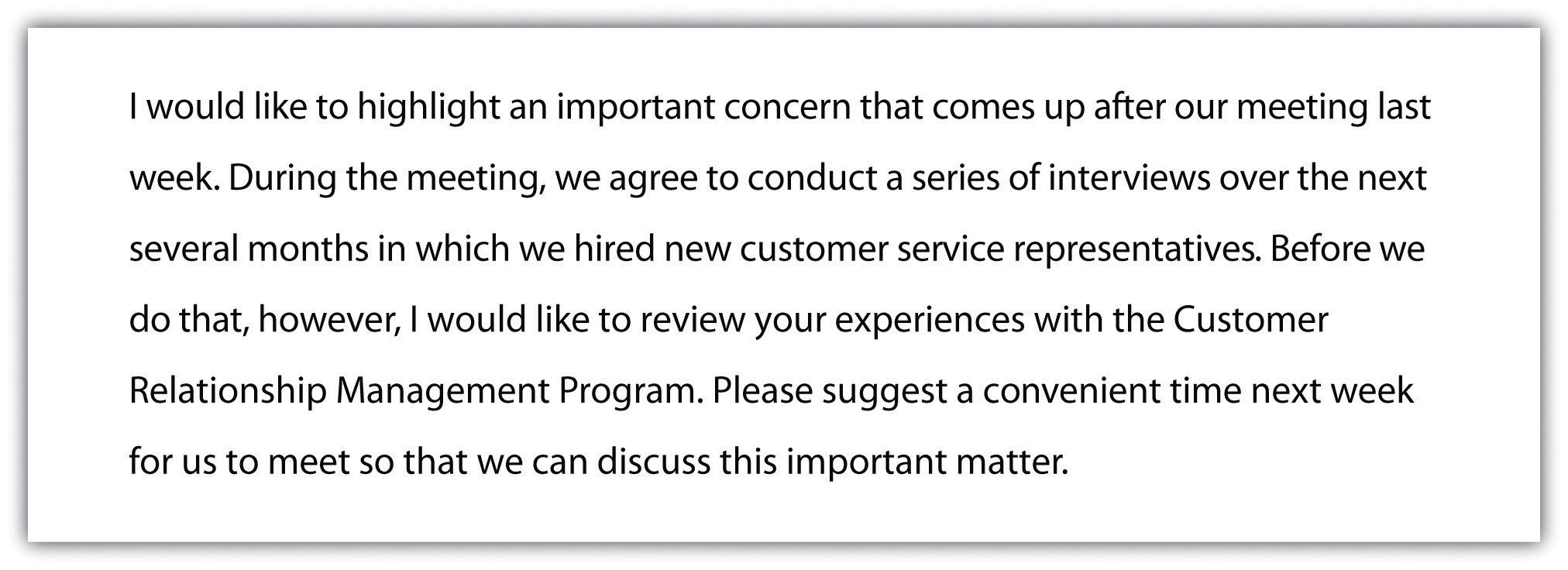33 Verb Tense
Andrew Stracuzzi and André Cormier
Learning Objectives
- Use the correct regular verb tense in basic sentences.
- Use the correct irregular verb tense in basic sentences.
Suppose you must give an oral presentation about what you did last summer. How do you make it clear that you are talking about the past and not about the present or the future? Using the correct verb tense can help you do this.
It is important to use the proper verb tense. Otherwise, your listener might judge you harshly. Mistakes in tense often leave a listener or reader with a negative impression.
Regular Verbs
Verbs indicate actions or states of being in the past, present, or future using tenses. Regular verbs follow regular patterns when shifting from the present to past tense. For example, to form a past-tense or past-participle verb form, add -ed or -d to the end of a verb. You can avoid mistakes by understanding this basic pattern.
Verb tense identifies the time of action described in a sentence. Verbs take different forms to indicate different tenses. Verb tenses indicate
- an action or state of being in the present,
- an action or state of being in the past,
- an action or state of being in the future.
Helping verbs, such as be and have, also work to create verb tenses, such as the future tense.
Present Tense: Sue and Kimmy walk to the store. (Plural subject)
Past Tense: Yesterday, they walked to the store to buy some bread. (Singular subject)
Exercise 1
Complete the following sentences by selecting the correct form of the verb in simple present, simple past, or simple future tenses. Write the corrected sentence on your own sheet of paper.
- The Dust Bowl (is, was, will be) a name given to a period of very destructive dust storms that occurred in the United States during the 1930s.
- Historians today (consider, considered, will consider) The Dust Bowl to be one of the worst weather of events in American history.
- The Dust Bowl mostly (affects, affected, will affect) the states of Kansas, Colorado, Oklahoma, Texas, and New Mexico.
- Dust storms (continue, continued, will continue) to occur in these dry regions, but not to the devastating degree of the 1930s.
- The dust storms during The Dust Bowl (cause, caused, will cause) irreparable damage to farms and the environment for a period of several years.
- When early settlers (move, moved, will move) into this area, they (remove, removed, will remove) the natural prairie grasses in order to plant crops and graze their cattle.
- They did not (realize, realized, will realize) that the grasses kept the soil in place.
- There (is, was, will be) also a severe drought that (affects, affected, will affect) the region.
- The worst dust storm (happens, happened, will happen) on April 14, 1935, a day called Black Sunday.
- The Dust Bowl era finally came to end in 1939 when the rains (arrive, arrived, will arrive).
- Dust storms (continue, continued, will continue) to affect the region, but hopefully they will not be as destructive as the storms of the 1930s.
Irregular Verbs
The past tense of irregular verbs is not formed using the patterns that regular verbs follow. Study Table 7.3 “Irregular Verbs”, which lists the most common irregular verbs.
Tip
The best way to learn irregular verbs is to memorize them. With the help of a classmate, create flashcards of irregular verbs and test yourselves until you master them.
| Simple Present | Past | Simple Present | Past |
|---|---|---|---|
| be | was, were | lose | lost |
| become | became | make | made |
| begin | began | mean | meant |
| blow | blew | meet | met |
| break | broke | pay | paid |
| bring | brought | put | put |
| build | built | quit | quit |
| burst | burst | read | read |
| buy | bought | ride | rode |
| catch | caught | ring | rang |
| choose | chose | rise | rose |
| come | came | run | ran |
| cut | cut | say | said |
| dive | dove (dived) | see | saw |
| do | did | seek | sought |
| draw | drew | sell | sold |
| drink | drank | send | sent |
| drive | drove | set | set |
| eat | ate | shake | shook |
| fall | fell | shine | shone (shined) |
| feed | fed | shrink | shrank (shrunk) |
| feel | felt | sing | sang |
| fight | fought | sit | sat |
| find | found | sleep | slept |
| fly | flew | speak | spoke |
| forget | forgot | spend | spent |
| forgive | forgave | spring | sprang |
| freeze | froze | stand | stood |
| get | got | steal | stole |
| give | gave | strike | struck |
| go | went | swim | swam |
| grow | grew | swing | swung |
| have | had | take | took |
| hear | heard | teach | taught |
| hide | hid | tear | tore |
| hold | held | tell | told |
| hurt | hurt | think | thought |
| keep | kept | throw | threw |
| know | knew | understand | understood |
| lay | laid | wake | woke |
| lead | led | wear | wore |
| leave | left | win | won |
| let | let | wind | wound |
Here we consider using irregular verbs.
Past Tense: Lauren kept all her letters.
Future Tense: Lauren will keep all her letters.
Exercise 2
Complete the following sentences by selecting the correct form of the irregular verb in simple present, simple past, or simple future tense. Copy the corrected sentence onto your own sheet of paper.
- Marina finally (forgived, forgave, will forgive) her sister for snooping around her room.
- The house (shook, shaked, shakes) as the airplane rumbled overhead.
- I (buyed, bought, buy) several items of clothing at the thrift store on Wednesday.
- She (put, putted, puts) the lotion in her shopping basket and proceeded to the checkout line.
- The prized goose (layed, laid, lay) several golden eggs last night.
- Mr. Batista (teached, taught, taughted) the class how to use correct punctuation.
- I (drink, drank, will drink) several glasses of sparkling cider instead of champagne on New Year’s Eve next year.
- Although Hector (growed, grew, grows) three inches in one year, we still called him “Little Hector.”
- Yesterday our tour guide (lead, led, will lead) us through the maze of people in Times Square.
- The rock band (burst, bursted, bursts) onto the music scene with their catchy songs.
Maintaining Consistent Verb Tense
Consistent verb tense means the same verb tense is used throughout a sentence or a paragraph. As you write and revise, it is important to use the same verb tense consistently and to avoid shifting from one tense to another unless there is a good reason for the tense shift. In the following box, see whether you notice the difference between a sentence with consistent tense and one with inconsistent tense.
The crowd starts cheering as Melina approached the finish line.
Consistent tense:
The crowd started cheering as Melina approached the finish line.
Consistent tense:
The crowd starts cheering as Melina approaches the finish line.
Tip
In some cases, clear communication will call for different tenses. Look at the following example:
If the time frame for each action or state is different, a tense shift is appropriate.
Exercise 4
Edit the following paragraph by correcting the inconsistent verb tense. Copy the corrected paragraph onto your own sheet of paper.
In the Middle Ages, most people lived in villages and work as agricultural laborers, or peasants. Every village has a “lord,” and the peasants worked on his land. Much of what they produce go to the lord and his family. What little food was leftover goes to support the peasants’ families. In return for their labor, the lord offers them protection. A peasant’s day usually began before sunrise and involves long hours of backbreaking work, which includes plowing the land, planting seeds, and cutting crops for harvesting. The working life of a peasant in the Middle Ages is usually demanding and exhausting.
 Connecting the Pieces: Writing at Work
Connecting the Pieces: Writing at Work
Read the excerpt from a work e-mail below.
The inconsistent tense in the e-mail will very likely distract the reader from its overall point. Most likely, your coworkers will not correct your verb tenses or call attention to grammatical errors, but it is important to keep in mind that errors such as these do have a subtle negative impact in the workplace.
Key Takeaways
- Verb tense helps you express when an event takes place.
- Regular verbs follow regular patterns when shifting from present to past tense.
- Irregular verbs do not follow regular, predictable patterns when shifting from present to past tense.
- Using consistent verb tense is a key element to effective writing.
 Writing Application
Writing Application
Tell a family story. You likely have several family stories to choose from, but pick the one that you find most interesting to write about. Use as many details as you can in the telling. As you write and proofread, make sure your all your verbs are correct and the tenses are consistent.



